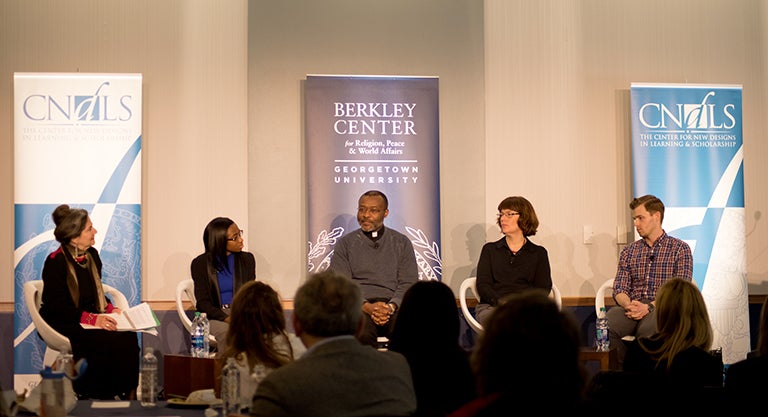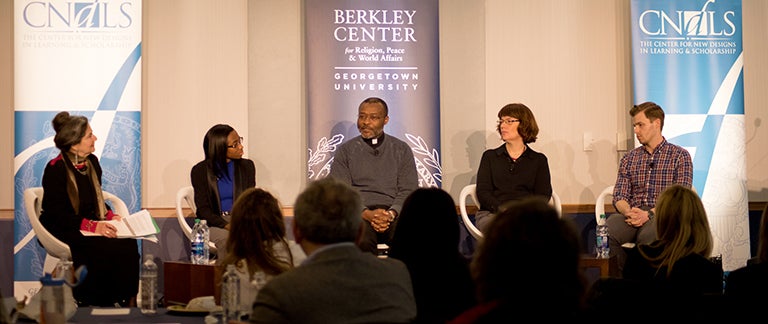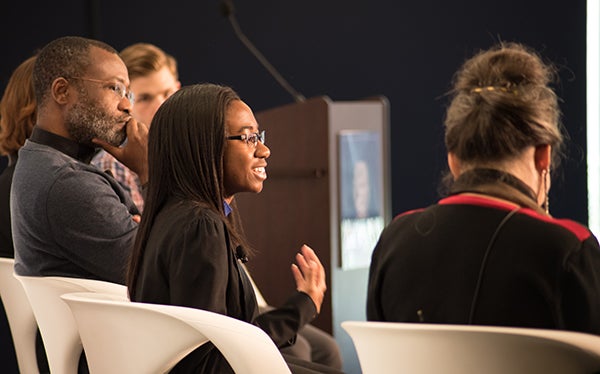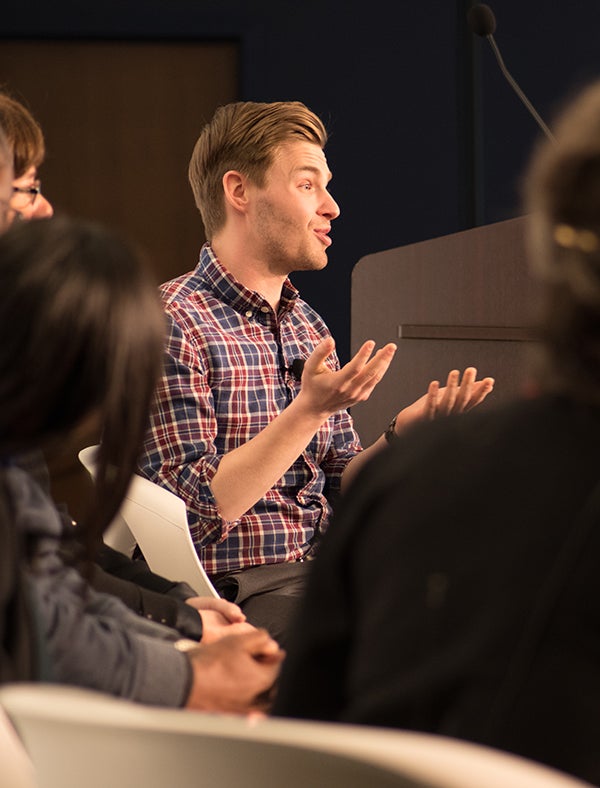Title: Tough Topics Part of 2018 Doyle Symposium on Teaching, Reconciliation
Georgetown students, faculty and staff explore the best ways to engage in the work of reconciliation across campus and throughout the world during the 2018 Doyle Symposium on Teaching and Learning for Reconciliation.

March 21, 2017 – Georgetown faculty, staff, and students explored the best ways to engage in the work of reconciliation across campus and throughout the world during the 2018 Doyle Symposium on Teaching and Learning for Reconciliation.
Panelists addressed the university’s reconciliation efforts related to its historical relationship with slavery and discussed various approaches to confronting ongoing forms of racism, xenophobia, sexism and other forms of gender discrimination that persist around the globe.
“We have distinct and crucial tasks as educators in addressing the substantial challenges to help students equip themselves with the skills of critical thinking and dialogue with others in more sophisticated ways that can build a peaceful and just and reconciled community,” said Edward Maloney, executive director of the Center for New Designs in Learning and Scholarship (CNDLS), in his introductory remarks at the March 16 event.

The Doyle Symposium is an annual event sponsored by the Doyle Engaging Difference Program and co-sponsored by the Berkley Center for Religion, Peace, and World Affairs and CNDLS.
In addition to supporting the annual symposium, the Doyle Engaging Difference Program sponsors faculty and student initiatives, including the Doyle Undergraduate Fellows Program. The fellowsprogram encourages students to conduct original research and participate in events and service projects that explore the broader implications of cultural and religious diversity.
Healing Relationships

Panelist Deirdre Jonese Austin (SFS’19), a Doyle Undergraduate Fellow from Charlotte, North Carolina, said she believes the process of reconciliation is a spiritual one.
“I’ve come to understand reconciliation as recreating relationships between God and oneself, and then within oneself,” she said.
Rev. Ludovic Lado, S.J., a visiting associate professor at the Walsh School of Foreign Service, also spoke of the spiritual and healing nature of reconciliation.
“Reconciliation, for me, basically means repairing and restoring broken human relationships,” he said.
“The Truth and Reconciliation Commission (in post-Apartheid South Africa) emphasized healing communal relationships,” Lado added. “Instead of trying to identify what’s wrong and what’s right, the emphasis was on reestablishing broken relationships to keep the community going.”
Forging Partnerships

Cheryl Suzack, associate professor of English and Indigenous studies at the University of Toronto, highlighted Canada’s recent work toward its indigenous populations.
“One of the goals of reconciliation should be coalitions, reaching out and working with other communities,” she said.
Andrew Walker (SFS’16), program associate of the Office of the Vice President of Global Engagement and student engagement coordinator for Georgetown’s HeForShe initiative, also spoke of the need for coalition-building when engaging in reconciliation.
In 2016, Georgetown announced its partnership with the United Nations HeForShe campaign, an international movement that encourages men and boys to advocate for gender equality.
“We’re really trying to figure out how to frame this issue in a way that is inclusive while also acknowledging that you do need to engage men and boys to be advocates for gender equality,” Walker said.